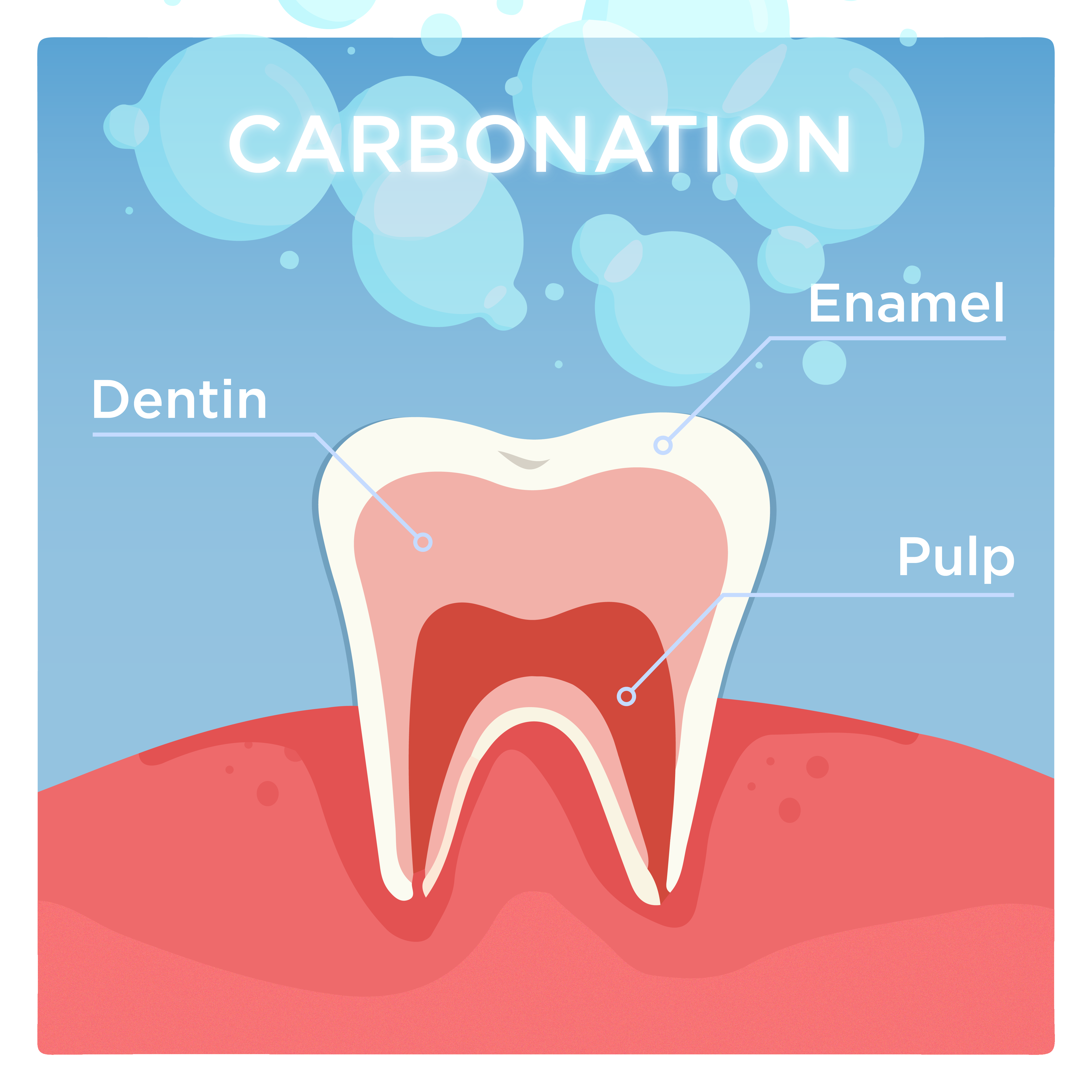
Looking for a refreshing beverage this summer?
We always say, “Water is the way to go!” However, while lounging next to the pool or celebrating a special occasion, water on its own might not hit the spot. But we know soda and juice are filled with cavity-causing sugar, so could a flavored sparkling water be a healthier alternative?
Yes!

The carbonation in sparkling water was a concern when it first started gaining popularity. However, studies have shown that its pH level is safe for teeth, even with the bubbles, and it should not cause erosion to enamel.
Here are a few things to keep in mind when choosing your bubbly beverage:
- When selecting a sparkling water, double check that it doesn’t contain sugar or fruit juice. If the drink contains sugar, it has the same downsides as soda or sports drinks.
- Be sure to drink plenty of fluoridated water; don’t let sparkling water replace normal tap water.
- Try to limit citrus fruit flavors. Citrus fruits are more acidic and can cause more damage to your teeth.
- Drinking sparkling water during a meal or in one sitting is preferred over sipping on it all day.
With regular brushing, flossing and drinking enough fluoridated tap water, sparkling water can be a refreshing addition to your summertime routine, without compromising your teeth.
Sources:
This information in this post is for general educational purposes only and does not warrant or represent any information as related to health as specifically appropriate for you. It is not intended to be medical advice or replace the relationship that you have with your health care providers. You should always seek medical advice on any diagnosis or treatment from a qualified health care provider. The information is provided “as is” without any representations or warranties, express or implied.





